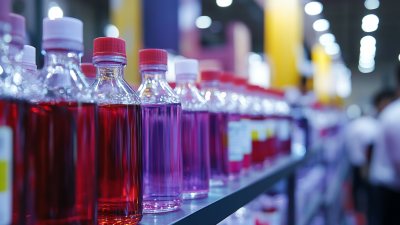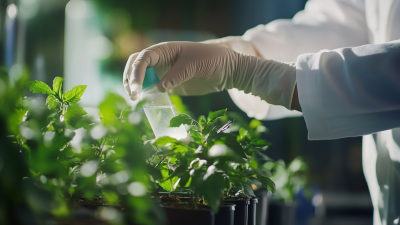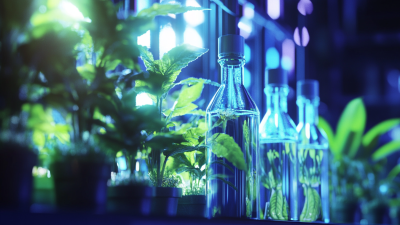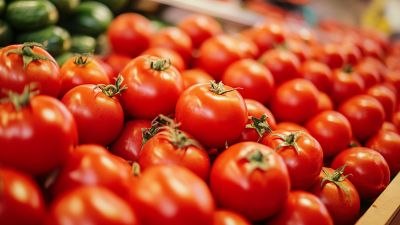 0551-68500918
0551-68500918 





You know, understanding Msds Pesticides has become super important lately, especially for global buyers on the hunt for effective pest management solutions. Some industry reports are saying that by 2025, the global pesticide market could hit a whopping$67.4 billion. It's pretty clear that there's a growing focus on safety and being environmentally friendly. Over at Innovation Meiland (Hefei) Co., LTD.in Hefei, China, we’re really leading the charge on this front. We're all about researching and developing new pesticide products and formulations. Our dedication to innovation means that we provide thorough and dependable MSDS Pesticide Information. This way, buyers can make decisions with confidence. This guide is here to delve into the different types of MSDS pesticides, helping everyone navigate the increasingly tricky world of pest control solutions.
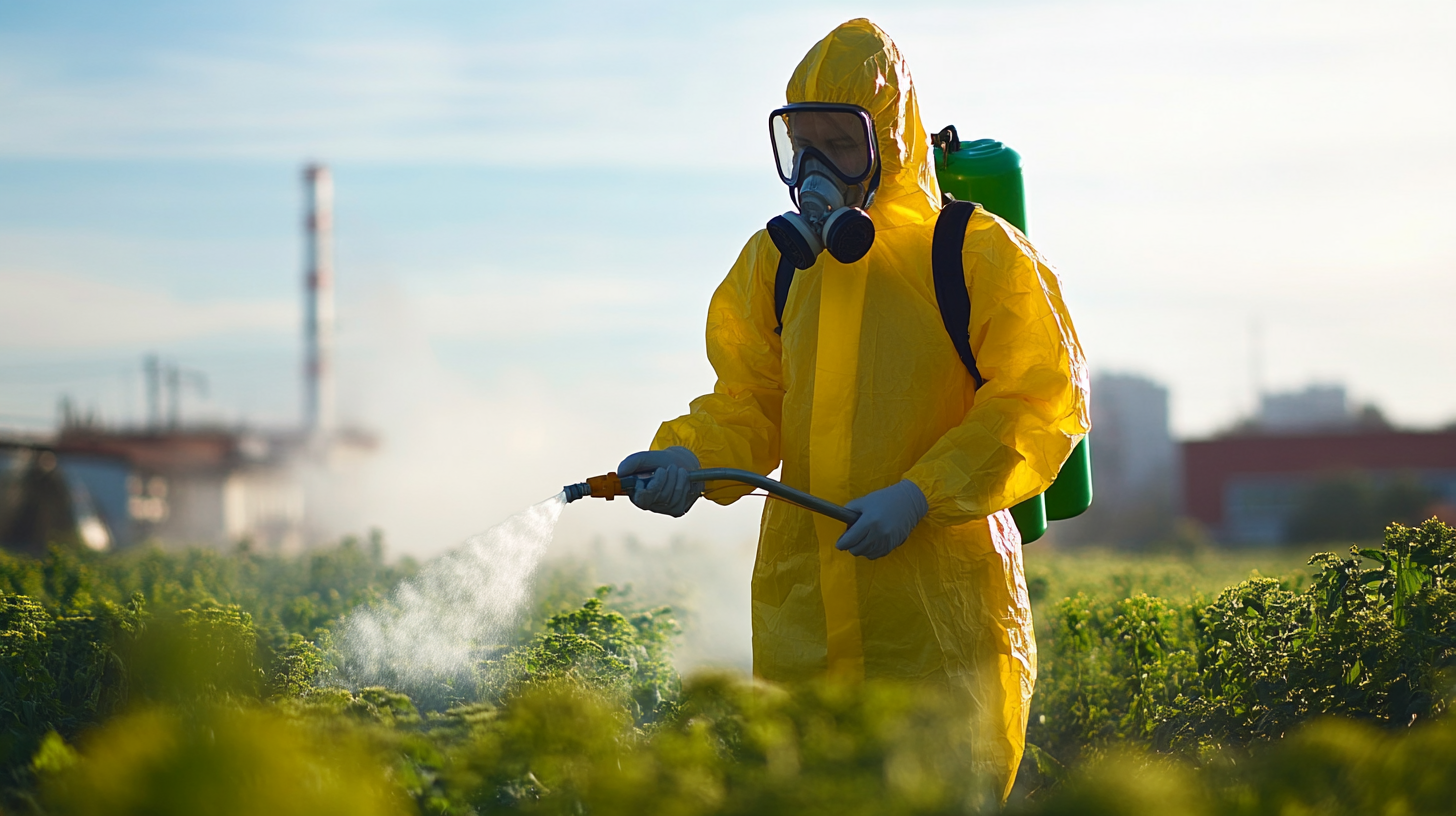
Alright, so when it comes to picking out pesticides, it’s super important for buyers around the globe to really pay attention to the Material Safety Data Sheet (MSDS). Think of it as a key guide for keeping everything safe and compliant. The MSDS lays out all the nitty-gritty details about chemical properties, potential hazards, how to handle the stuff, and what kind of safety precautions to take. This info is just essential for making smart choices that protect not only the folks working there but also the environment we all share. With regulations tightening up these days, really getting to grips with MSDS requirements can help companies dodge legal troubles, boost their corporate responsibility, and up their safety game overall.
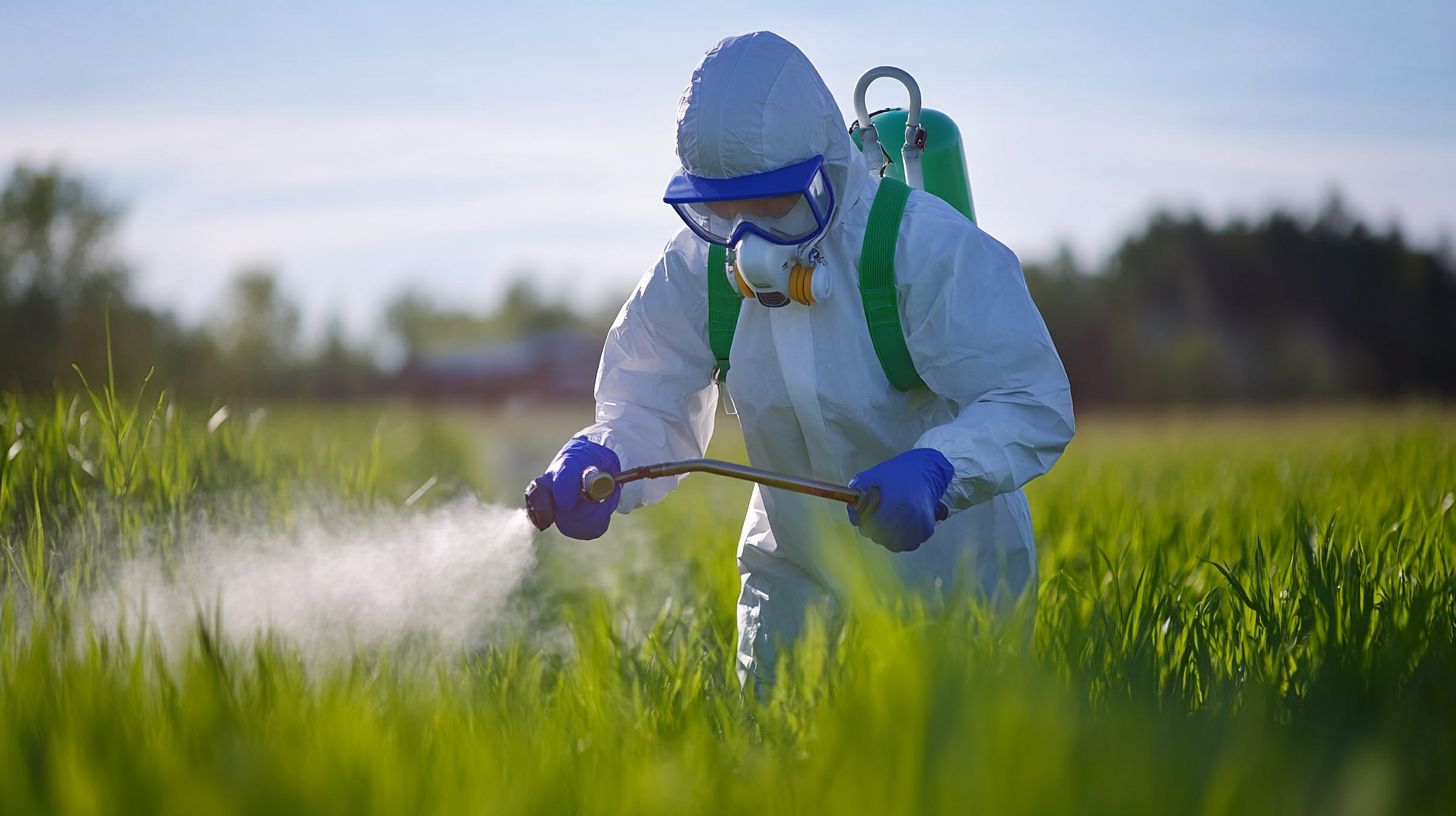
Recent reports are showing that the global Safety Data Sheet (SDS) management market is on track for some serious growth.Why? Well, there’s a growing awareness about chemical safety in all sorts of industries, from agriculture to pharmaceuticals. By 2033, we’re expecting the market to swell, driven by the need for good documentation and sticking to safety rules. On top of that, more companies are hopping onto digital SDS platforms. These tools make it way easier to access important safety info and help ensure compliance with international guidelines. That way, global buyers in the Pesticide Industry can move through the process more smoothly and transparently.
When you're on the hunt for good quality pesticides, there are some key features you really should keep in mind to ensure they work well and keep things safe. First off, let's talk about the concentration of active ingredients. Generally, higher concentrations can mean the product packs a better punch against those pesky pests, but they also demand a bit more care when you’re handling them. It's also super important to check out the manufacturer's reputation—make sure they stick to international safety standards, like those OECD guidelines that help govern how chemicals are tested and classified.
Now, another thing to keep an eye on is the pesticide's formulation type. You’ve got liquid concentrates, granules, and aerosols, each of which has its own way of being applied and suits different pest issues. Liquid ones are usually a breeze for covering large areas, while granules can be a great choice for treating soil. Nail down what your specific needs are and consider the environment a bit—this will help you figure out the best option for you.
Also, don’t forget to look for products that have minimal environmental impact. Those labeled as “biopesticides” or made from natural sources tend to be safer for non-target organisms, like those little guys we want to keep, such as beneficial insects. As for using them responsibly, remember to gear up with protective clothing during application, and stick to the recommended dosages and schedules. That way, you’ll ensure safety and effectiveness without causing harm to the ecosystem. By focusing on these key features, you can make well-informed choices that hit the sweet spot between pest control and caring for our environment.
This chart compares key features to look for in high-quality pesticides. The values represent quality metrics, rated on a scale from 0 to 100. Features such as Active Ingredients and Safety Profile are critical for buyers to consider when evaluating pesticides for their needs.
You know, getting a handle on regulatory compliance for pesticides on a global scale is becoming super important, especially as the industry is going through some pretty big changes. Recent reports show that the global market for pesticide residue testing is expected to jump from around $1.6 billion in 2024 to nearly $3.1 billion by 2034. That’s a solid growth rate of about 6.9%! This growth really highlights how vital compliance is right now, especially when everyone is paying more attention to food safety and governments are stepping up their regulatory game.
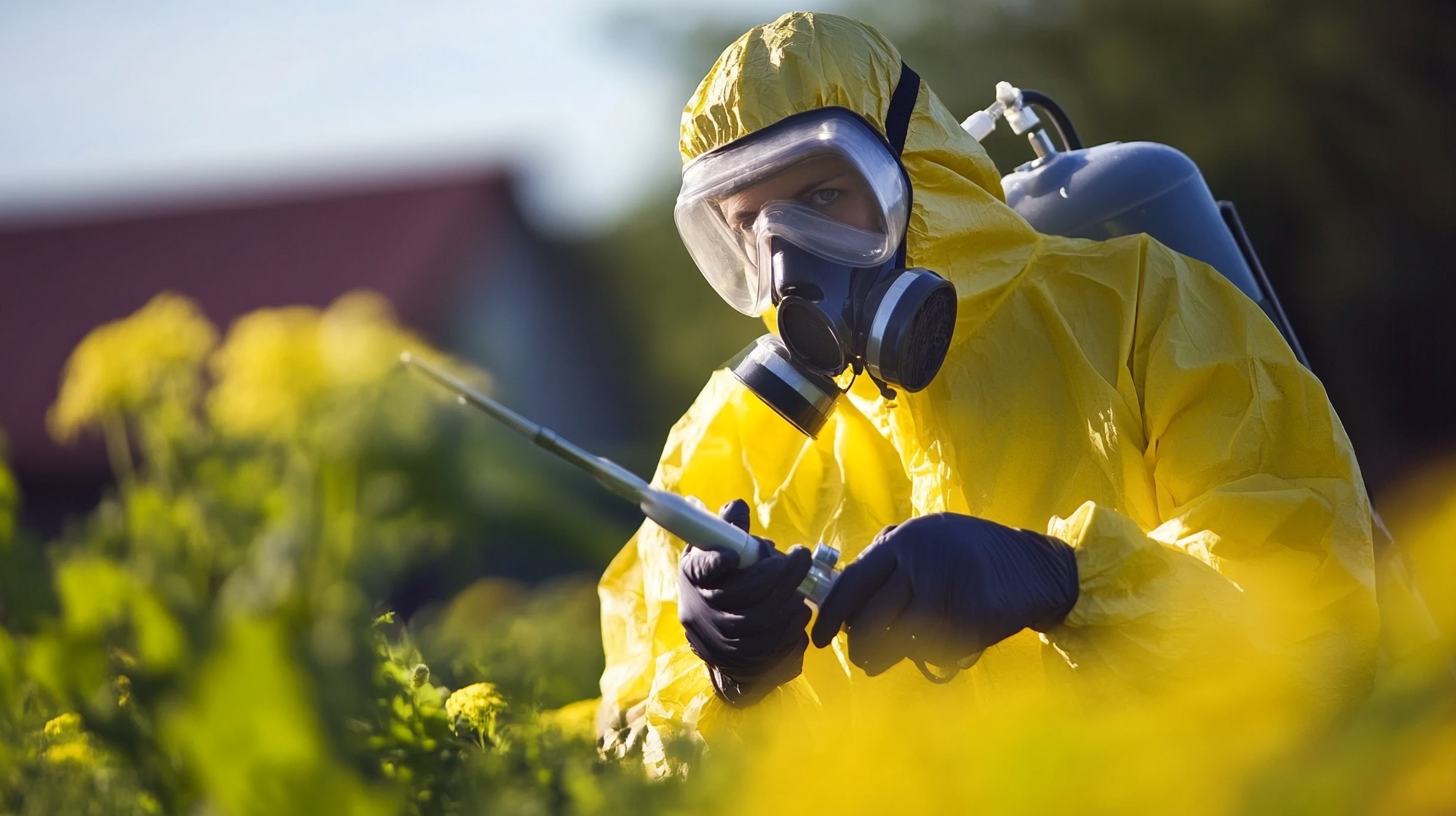
And get this—herbicides alone make up more than 41% of the global pesticide residue testing market. So, it’s no surprise that regulatory agencies are putting more effort into tackling the environmental and health issues tied to pesticide use. There’s been a comprehensive study on atmospheric pesticide pollution that points out some significant differences between regions, which has pushed regulators to beef up their monitoring systems and performance measures. These steps are super crucial for crafting policies that not only help farms be productive but also protect public health and reduce environmental harm. It’s all about finding that sweet spot in pesticide regulation around the world!
So, when you're looking into the safety and effectiveness of pesticide products, it’s super important for buyers around the world to really get the nitty-gritty of Material Safety Data Sheets, or MSDS for short. These sheets pack a whole lot of useful info about what these chemicals are made of, the hazards they might pose, how to handle and store them safely, and what to do if something goes wrong, like an exposure. By diving deep into the MSDS, buyers can make choices that not only focus on how well these pesticides work on pests but also keep users and the environment safe. Things like toxicity ratings and exposure limits are pretty important when it comes to figuring out the overall risks tied to using these products.
But here’s the thing—safety and efficacy should definitely go hand in hand. You really need to understand how different pesticides stack up against various pests and in different environmental conditions. It’s all about considering stuff like active ingredients, how you apply them, and what specific pests you’re targeting to ensure you pick the right one for your needs. Plus, checking out field studies and testimonials from other users can really help paint a picture of how effective a product actually is. In the end, doing a thorough evaluation of both safety and efficacy, backed up by a careful look at MSDS, allows buyers to choose pesticides that not only comply with regulations but also support eco-friendly practices.
So, if you're trying to figure out the best MSDS pesticides for buyers around the world, it’s really important to get a handle on Chinese manufacturing standards. These standards are super crucial because they help guarantee that products meet some pretty tough quality tests. You can really see China’s push for better pesticide quality—they’re all about sticking to international rules and norms. This means that Chinese manufacturers can churn out products that are not just reliable but also safe for the global market.
**Pro tip:** If you're looking at potential pesticide suppliers, definitely ask about whether they follow Chinese standards, like the GB (Guobiao) standards. This info is key if you want to make sure their products are safe and actually work.
Plus, many manufacturers in China are putting money into advanced testing and tech upgrades, making sure their processes keep up with the best in the industry worldwide. This strong focus on quality doesn’t just make their products more appealing; it also helps build a solid trust with international buyers.
**Another tip:** Always ask for documentation related to quality assurance and test results when dealing with suppliers. That level of transparency can really go a long way in forming a trustworthy partnership.
| Pesticide Type | Active Ingredient | Formulation | Application Method | Safety Level | Global Compliance |
|---|---|---|---|---|---|
| Herbicide | Glyphosate | Liquid | Spray | Moderate | EPA, EU |
| Insecticide | Imidacloprid | Granule | Soil Application | High | EPA, PMRA |
| Fungicide | Azoxystrobin | Liquid | Foliar Spray | Low | EPA, EU |
| Rodenticide | Bromadiolone | Block | Bait Placement | High | EPA, EU |
Let’s be real—buying pesticides can feel like a bit of a maze, especially when you’re trying to wrap your head around Material Safety Data Sheets, or MSDS for short. These sheets are super important because they give you the lowdown on the hazards associated with different pesticide products. So, when you're out there shopping for these products, you've really got to take a good look at the MSDS. It has crucial info on how to handle everything safely, potential health risks, and what to do in an emergency. By getting familiar with how these sheets are structured and what they contain, you can make wiser choices that keep safety front and center.
If you’re a global buyer, you’ve got to keep in mind that MSDS regulations can vary quite a bit from one place to another. Different regions have their own rules on what needs to be included in these documents, which is why it pays to do a bit of homework and make sure you’re following local laws. Plus, staying on top of your product documentation not only keeps things safe but also protects your personal information. So always be on the lookout for how your data is being handled when you’re buying pesticides, ensuring it fits within the best practices for data management.
: The MSDS provides detailed information about the chemical properties, hazards, handling procedures, and safety precautions associated with pesticide usage, aiding buyers in making informed and safe decisions.
Adhering to MSDS requirements helps safeguard companies against legal repercussions, enhances corporate responsibility, and improves overall safety protocols, especially in an era of increasing regulatory scrutiny.
The market is anticipated to grow significantly due to rising awareness around chemical safety in industries like agriculture and pharmaceuticals, driven by the need for proper documentation and compliance.
Chinese manufacturing standards, such as GB (Guobiao) standards, ensure that products meet rigorous quality assurance criteria, aligning with international regulations to produce reliable and safe products for the global market.
Buyers should inquire about the manufacturer’s compliance with Chinese standards and request documentation of quality assurance practices and test results to ensure product safety and efficacy.
Buyers should closely examine the MSDS for information on safe handling, potential health effects, and emergency response measures to prioritize safety in pesticide purchases.
Yes, each jurisdiction may have specific requirements regarding the information that needs to be included in the MSDS, so buyers should research and ensure compliance with local regulations.
Managing product documentation helps maintain safety and protects personal data, ensuring alignment with best practices in data management during pesticide purchases.
Digital SDS platforms streamline access to critical safety information, facilitate compliance with international guidelines, and create a more transparent and efficient process for global buyers.
Chinese manufacturers often invest in advanced testing and technological improvements, which helps enhance product quality and builds trust with international buyers.
